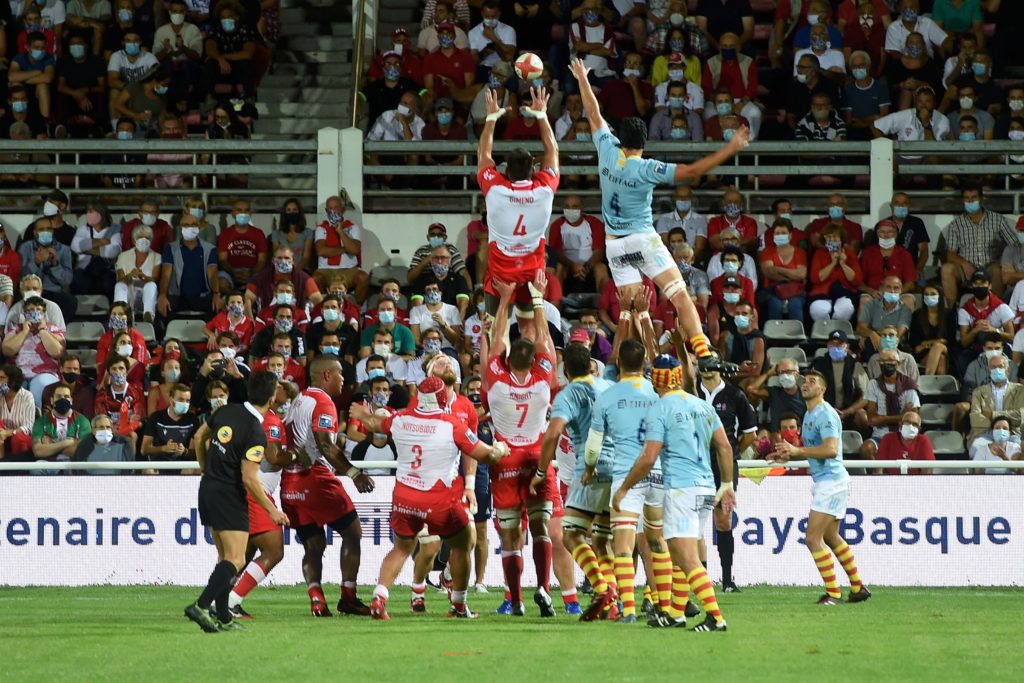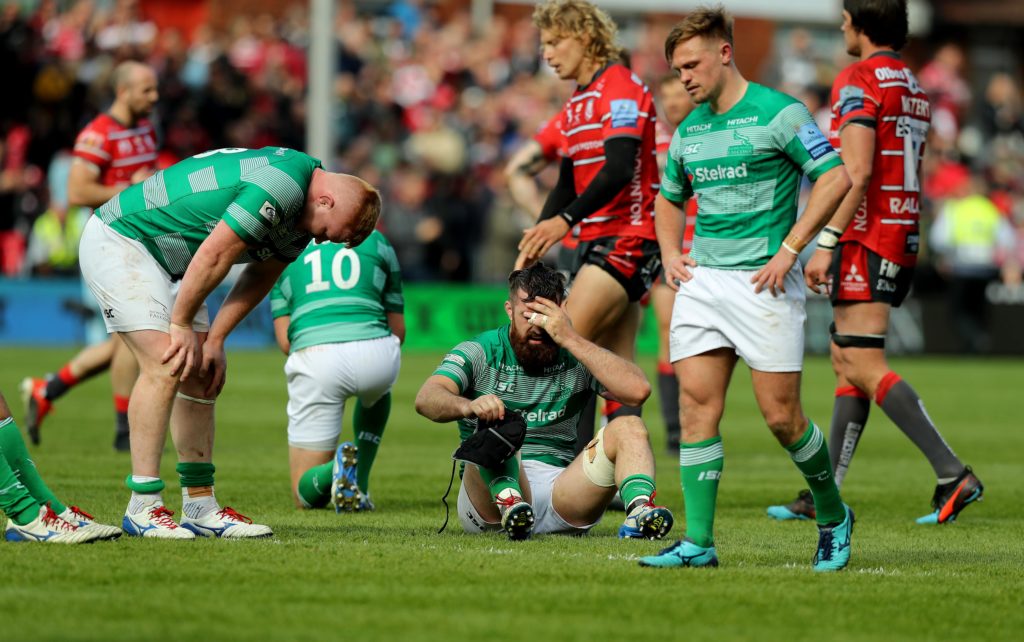All roads, it seems, lead to a closed league. Either you start off with one and grow your sport on your own terms (like virtually every major team sport around the world, bar football), or you give yourself over to a free-market utopia – where dreaming big (for which read spending big) is everything. In which case you get to a closed league anyway, just not the kind anyone can control, bar the lunatics who built the asylum.
Football in this country is currently patting itself on the back because a groundswell of populism saw off the evil money monsters who wanted to run away with the People’s Sport. It is difficult to know which idea is more laughable – that a European Super League is anything but temporarily on hold, or that football in all the major European leagues is anything but a closed league by any other name already.
This is how the free-market model ends up. Resources gravitate remorselessly into the hands of the few. There can be no other way. Long gone are the days when the likes of Ipswich or Nottingham Forest, Bologna or Sampdoria retained a puncher’s chance of winning a league. Over the decades, that coalescence of resources cannot be stopped.
It should surprise no one that those emergent centres of power eventually decide that, as they’re the only ones who ever win anything anyway, they might as well leave the rest behind.
Teams from a few big cities gather the largest followings as they win trophies. Thus snowballs of money, players, trophies and more fans gather around each of them (all right, less so with Tottenham, but you get the point). The roll call of this century’s champions of England, Spain, Italy, Germany, Scotland and on and on does not bear too much scrutiny if spreading the love is at all important to a sport. They’re all closed shops, if not nominally closed leagues.
It should surprise no one that those emergent centres of power eventually decide that, as they’re the only ones who ever win anything anyway, they might as well leave the rest behind. Imagine if they could play each other in perpetuity and be guaranteed the revenue that would bring…
That is the logical endpoint of a seamless pyramid that leaves everything to the market. Because of its vast and sprawling base, football is the only sport in the world that can withstand the forces of the free market, the tip of the pyramid forcing its way ever higher into an ever-sharper point, until it becomes, effectively and no doubt soon actually, a closed league.

There are two other systems in the world that copy the seamless model – rugby union in England and France. But they are not so big. There’s a decent base of the pyramid in the shape of many thousands of youngsters running free on a Sunday morning, but it tapers alarmingly in the middle, where the withering adult community game can be found. And then, in England at any rate, we have a relatively fat lump at the top, which is the Premiership.
In France, the lump at the top might be said to be even fatter, consisting of two well-supported, well-funded divisions of professionalism, but there is a much deeper culture for the sport in the southern half of France and a much older league system. The average gate in ProD2 for the last completed season was 5,500; in the English Championship, the figure was 1,700. There is also much stronger regulation in France, regarding not only financial probity but also access to the top two divisions. The second promotion spot to ProD2, for example, is available only to clubs in the northern half with big enough local populations and a coherent business plan.
Since the European Super League went up in smoke, we have run through the gamut of clichés in rugby, all borrowed from football, which, even if it weren’t the biggest sport in the world by a distance, has hardly hit upon an enviable model of governance.
There is much bold talk about how viewers will switch off if there’s no relegation. This is rhetoric. Ask such people for proof that a relegation fight is a ratings winner in English rugby.
Where to start with them? Cliché No1: it only matters if someone is relegated. Tell that to literally every other sport on Earth, none of which allows its professional game to run messily into its amateur and vice versa.
There is much bold talk about how viewers will switch off if there’s no relegation. This is rhetoric. Ask such people for proof that a relegation fight is a ratings winner in English rugby. Newcastle will tell you there has been no evidence of heightened levels of engagement during any of their various fights against the drop, either among their own fans or in television ratings.
And, even if there had been, it better be a massive uplift, given the losses incurred not just by the club but by the sport when one of the Premiership falls out of the top flight. Jobs are lost – and not so much by those losers on the field everyone lusts to see punished, more by anonymous caterers, front-of-house staff, community officers and the like, many with families to feed. Hope that Friday-night dogfight against Leicester nobody watched was worth it. Add to that, in the case of Newcastle, the removal of top-flight rugby from the northernmost quarter of England’s landmass for an entire season, and the rhetoric about the entertainment of jeopardy seems even more pathetic.

Cliché No2: it’s a betrayal of everything sport stands for. Again, tell that to all the other sports that do not consider this macabre blood-letting to be fundamental to their operation, or even anything other than horribly damaging to it. In English rugby such complaints are particularly hollow. There is barely any history that needs to be honoured there. The concept of the entire league pyramid is 15 years younger than I am. And I haven’t reached 50.
Cliché No3: what about the hopes and dreams of all the others? This complaint is predicated on the notion that sport is meant to be about romance. Why shouldn’t some happy-go-lucky band of brothers who have grown up together play their way to the Promised Land?
That Ealing stand on the brink of the Premiership is down to one thing and one thing only, the money of an 84-year-old multi-millionaire and the team that money has recruited.
Because it is impossible without financial doping. Ealing are the latest to stand on the brink of the Premiership. When I was in my 30s we used to play them in level six of the league pyramid. Great club. Still are, with a thriving minis and junior section. That they stand on the brink of the Premiership is down to one thing and one thing only, the money of an 84-year-old multi-millionaire and the team that money has recruited. No different from all the other elite clubs, you might say – and you would have a point – but at least the others have been at it for 20-plus years now. There comes a point when a sport just does not need another multi-millionaire pimping up a first XV in the name of the free market.
There are countless other Ealings, meanwhile, moving up and, usually at some point, plummeting back down the pyramid. They leave a trail of other community clubs in their wake, stripped bare by their player recruitment and/or battered on the field by their unnaturally powerful first XVs. They leave behind a lot of ill will. People stop playing, or they ask why their own club doesn’t pay. And on the free-market madness goes, resources gravitating into the hands of the few, even in as modest and homespun an environment as English community rugby.
And then the final cliché to ridicule all clichés. What about the next Exeter? Perhaps the most misguided complaint about a closed league is that it puts up a barrier to the growth of a sport. It actually creates the possibility at least of some strategic thought developing – and thence expansion through deliberate decision-making, rather than the randomness of what happens on the field in the league below. There are closed leagues around the world that have grown dramatically in the last half-century or so without relegating anyone.

Exeter are the perfect example of a club ripe for the Premiership, situated in the far South-West, the only region of England that rugby could claim to dominate. They also sold their previous home, the County Ground, to developers for £12million. Without that windfall, there would be no Sandy Park, and there would be no English and European double.
These ventures require money wisely invested and they require planning. Exeter were always a good fit for top-flight rugby. London Welsh, for example, were not.
Yorkshire is another gaping hole that might be filled. If the Premiership were to expand to 14, a strategist would pick as the 14th not Ealing in overcrowded west London, but somewhere like Doncaster.
But there’s not much strategy in English rugby, among either its fanbase or its, er, strategists. The complaint that the imminent closing of the Premiership is born out of mismanagement and panic might be fair, but that does not make that development a mistake. For all sports apart from football – and particularly so for collision sports like rugby – a sealing-off of the professional game from the amateur is a key plank of good governance.
Where that sealing-off occurs is a question for those strategists. It may be it should be sealed off below the Championship, or that the Championship acts as a sort of halfway house, funded by the RFU and Premiership clubs, in which players might be developed.
But the notion of a closed league in rugby should not be treated with the fury it has been in football. Particularly when in football that European Super League already exists in all but name.


Comments
Join free and tell us what you really think!
Sign up for free